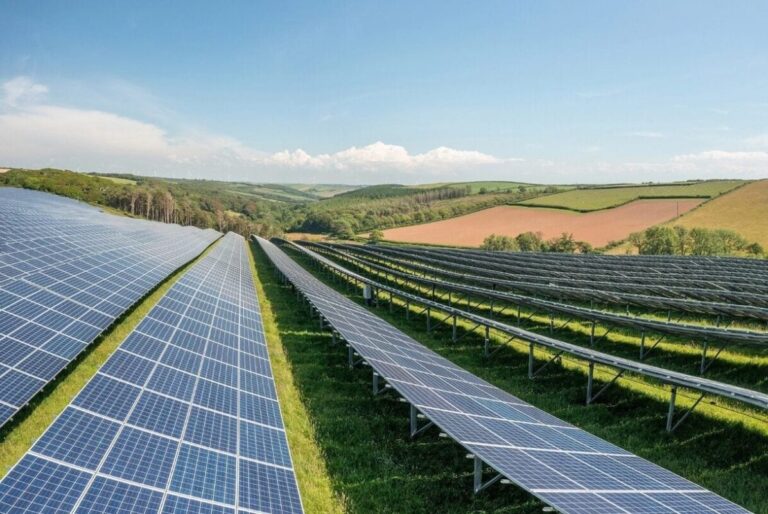In the UK electricity market, average demand for transmission systems fell to 23.5 GW in the second quarter of this year, the lowest level in the second quarter since 2020.
This was partly attributed to increased on-board solar generation and load shifting from batteries and other sources.
A report from energy data analyst Montel Analytics shows that electricity generation in Britain (excluding imports) fell 17% from the previous quarter to 54.6 TWh. Renewables contributed 47% to the generation mix this quarter – the report groups wind, biomass, solar and hydropower in this segment.

Renewable energy generation was the largest contributor to Britain’s energy generation mix in the second quarter of 2024, followed by gas-fired generation, which made up 21% of the total.
Solar energy generation increased 174% compared to the first quarter, reaching the highest level of any recent quarter with total solar energy production of 5.14 TWh.
Solar production rose 4% year-over-year in the second quarter of 2024, less than the year-over-year increase between 2022 and 2023. Phil Hewitt, director at Montel Analytics, put this in the context of “pretty terrible weather.”
Wind production contributed 17.2 TWh to the generation mix, a decrease of 31% compared to the first quarter of 2024, but still 3.8 TWh higher than the second quarter of 2023. Weather conditions caused bidding volumes to be introduced to reduce the surplus of available wind energy, which amounts to 8% of the average. wind generation.
Gas production fell by more than a third this quarter to 13.4 TWh, the lowest figure recorded by Montel Analytics in twenty years. Gas prices rose steadily: at the start of the second quarter they stood at £23.24/MWh, peaked at £30.06/MWh on 3 June and ended the quarter at £27.35/MWh.
Hewitt attributed some of the decline in demand to businesses and consumers becoming increasingly conscious of limiting their energy costs.
He said: “Higher levels of net imports resulted in very low gas production, while gas prices rose steadily after a decline in the previous quarter.”
Research from Carbon Brief found that fossil fuel-generated electricity in Britain fell by 22% in 2023, to the lowest level since 1957. This decline is likely to continue, especially after a decline in coal-fired power generation in the first quarter of 2024, in line with the decommissioning of the last coal-fired power station, Ratcliffe-on-Soar. Our sister publication, Current±, recently reported that the power plant had done so received his last load of coal. The closure is scheduled for September 30 this year.


